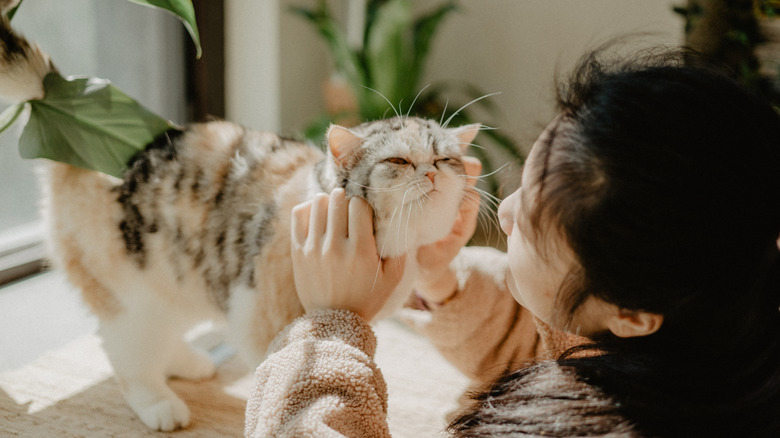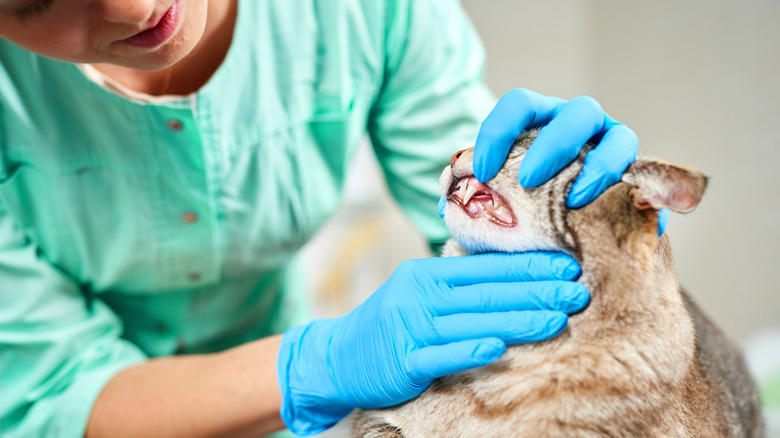You've Been Warned: Don't Ignore Your Cat's Stinky Breath
Given that cats feed on food like tuna, it's not so surprising that their breath doesn't smell like roses. After all, they don't have the ability to use products like dental floss and mouthwash like humans do. However, if your feline friend's breath has you covering your nose, it may warrant a deeper look.
While stinky breath is not abnormal for cats, if it reaches a level of stench that is unbearable, it should not be taken lightly. According to Cornell University School of Veterinary Medicine, there are several concerning conditions that could be the culprit when your cat's breath is particularly unpleasant. Smelly breath — also called halitosis — can indicate signs of periodontal disease along with diabetes and diseases related to the kidney, skin, and liver.
Periodontal disease is unfortunately quite common in cats — and painful. Some notable signs your cat may be suffering from the condition include bleeding gums, reduced appetite, abnormal coloring of the mouth (white, gray, or brown), and swelling around mouth and chin, per BetterVet. Gingivitis causes the gums to swell and bleed, so it is important to keep an eye on this before it progresses. You can tell if your cat has toothache or other dental issue by paying attention to their grooming and eating habits. A cat in pain will take longer to eat and clean themselves.
Treatments for stinky breath in cats
Brushing your cat's teeth is a good way to prevent bad breath and also remove any food that may be stuck. There are specific dental gels for felines that can be found in stores or online. It is incredibly important to not use toothpaste that is not specifically for cats. The other point to remember is that brushing can get particularly tricky with some cats. But teasing a treat to go with it is a good way to trick them into a good brushing.
If you are uncomfortable with brushing your cat's teeth, you can hire a professional, whether it be a pet groomer or a veterinarian. Pet stores like Petco offer dental cleaning services, but there are many other options. You can also purchase cat chew chows to promote playtime and dental health or dental chews that help keep a feline's teeth in good shape since they do not usually chew kibble. The only true remedy for feline gingivitis, meanwhile, is regular dental hygiene.
There are several treatment options if your cat already has periodontal disease. For example, a veterinarian may remove plaque and mineral buildup while polishing the teeth. However, in extreme cases, they may extract teeth. There are veterinarians that specialize in dentistry, and there are benefits to bringing your cat to a specialist versus your regular veterinarian. Since they specifically focus on teeth, they will likely know more than a general veterinarian and ensure the best care.

